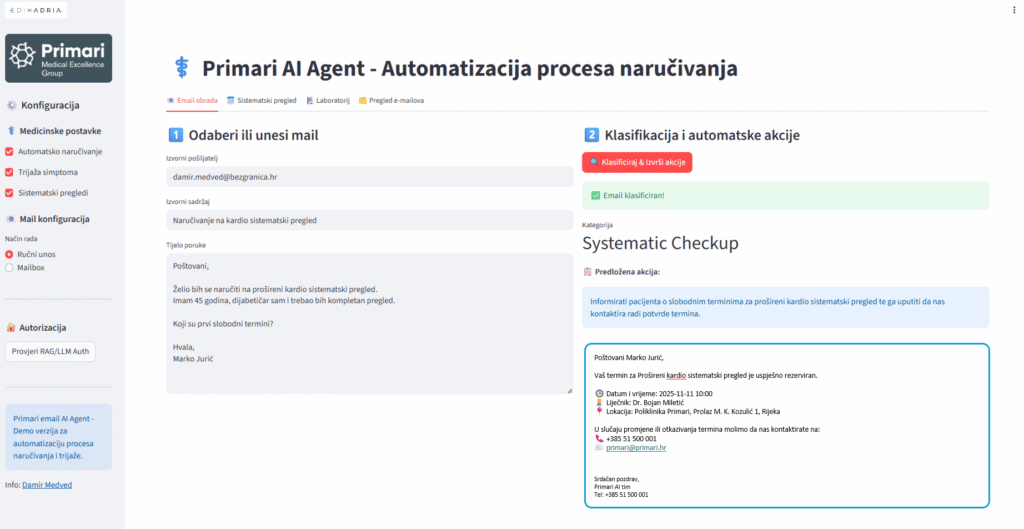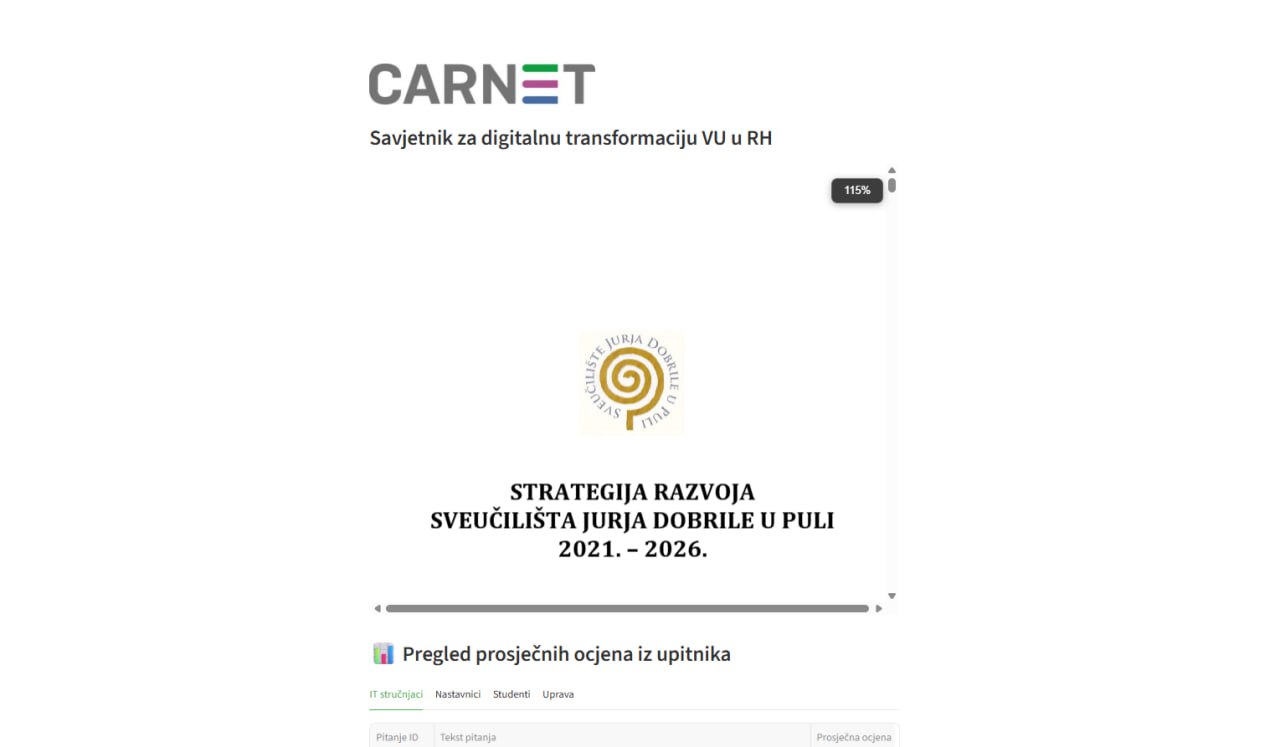Challenges
Primari Polyclinic is a modern private health institution that strives for a personalized approach to patients, but faces challenges related to the growing number of administrative inquiries and requests. Particularly burdensome are repetitive tasks such as answering frequent e-mail queries, ordering patients and coordinating systematic examinations, which deprives medical and administrative staff of a significant part of their working time.
In parallel with the increase in the number of patients and the need for faster information processing, there is also the challenge of coordination with external partners, such as laboratories and diagnostic centres, who often work with different systems and the pace of response. There was a clear need for a digital solution that would enable fast and reliable communication, reduce administrative burden and make information more accessible to users, without compromising on security and accuracy.
Solutions
Through Test Before Invest EDIH Adria, Primari Polyclinic tested an advanced solution based on artificial intelligence – an AI agent that combines Large Language Model (LLM) technology and RAG (Retrieval-Augmented Generation) approach to process user queries.
A functional prototype system has been developed that combines:
- AI Avatar with integrated voice and visual display, which offers users answers to general information about the polyclinic;
- Smart email platform that classifies incoming messages into 9 categories (e.g. queries about symptoms, prices, doctors, working hours, systematic reviews, etc.);
- Automated patient triage based on symptom description, with specialist recommendation and appointment proposal;
- Integration with Google Calendar for automatic preview scheduling;
- Automatic coordination with external partners, with follow-up of responses and reminders;
- A central knowledge base where all relevant documents (price lists, schedules, medical guidelines...) are entered, ensuring that AI responses are accurate, up-to-date and verified.
The system was developed in a testing environment, as a technological demonstrator, without being introduced into production use.
Results and Benefits
Although it is a test, the results have shown the exceptional potential of the system to improve the day-to-day work of a health institution. Through simulation of actual scenarios and data collection, numerous benefits that the implementation of such a system would bring have been identified:
- The response time to the query has been reduced from 4-24 hours to less than 5 minutes;
- Administrative burden reduced by 85%, allowing staff to focus on more complex tasks and work with patients;
- Triage accuracy increased to 95%, with the possibility of automatic recognition of emergencies;
- The organisation time of the screening (involving external partners) is reduced from 1-2 days to 30 minutes;
- Patient satisfaction increased by 34%, and the number of missed appointments and queries is kept to a minimum;
- Annual financial savings are projected to range between €35,000 and €50,000, with a return on investment within 8-9 months.
Test results have clearly demonstrated the operational and financial potential of AI-based digital transformation in healthcare.
Lessons learned
During the testing, the key conditions for the successful implementation of AI solutions in healthcare were identified:
- Standardisation of input data and medical documentation structures are crucial for quality processing and accurate responses by AI agents;
- The iterative development of the system, in cooperation with medical staff, is necessary to identify real needs and exceptional situations from practice;
- Data security and privacy must be built into every step of the system design;
- Modular architecture allows for the gradual introduction of new functionalities without disrupting existing business;
- Integration with calendars, email and databases must be precisely tested and technically reliable, especially in institutions with a high level of data sensitivity.

Measurable data
During the test phase (TRL 3), the following indicative results were achieved:
- Response time to enquiries reduced by 96%;
- Accuracy of AI triage increased from 85% at 95%;
- Administrative staff burden reduced from 40% at 5% working hours;
- Patient satisfaction increased from 3.5 to 4.7 out of 5;
- Ordering time reduced from 1-2 days to 30 minutes;
- External partners' response rate improved by 70%.
Conclusion
Testing of AI agents at the Primari Polyclinic provided concrete and measurable insight into the possibilities of digital transformation of health institutions with the help of LLM and RAG technologies.
Although it is not a production implementation, the test phase has shown clear operational, organizational and financial benefits that the system could bring in real-life conditions. The system is designed to be scalable and modular, with the possibility of extension to voice assistants, mobile applications and integration with EHR systems.
The project laid the foundation for further digitalisation, and the acquired insights and technical documentation serve as a starting point for investment planning and application to national or EU tenders.
The Primari Polyclinic thus expressed a visionary approach and readiness to adopt the most modern technologies in order to improve the quality of service, patient satisfaction and the efficiency of the health system.





